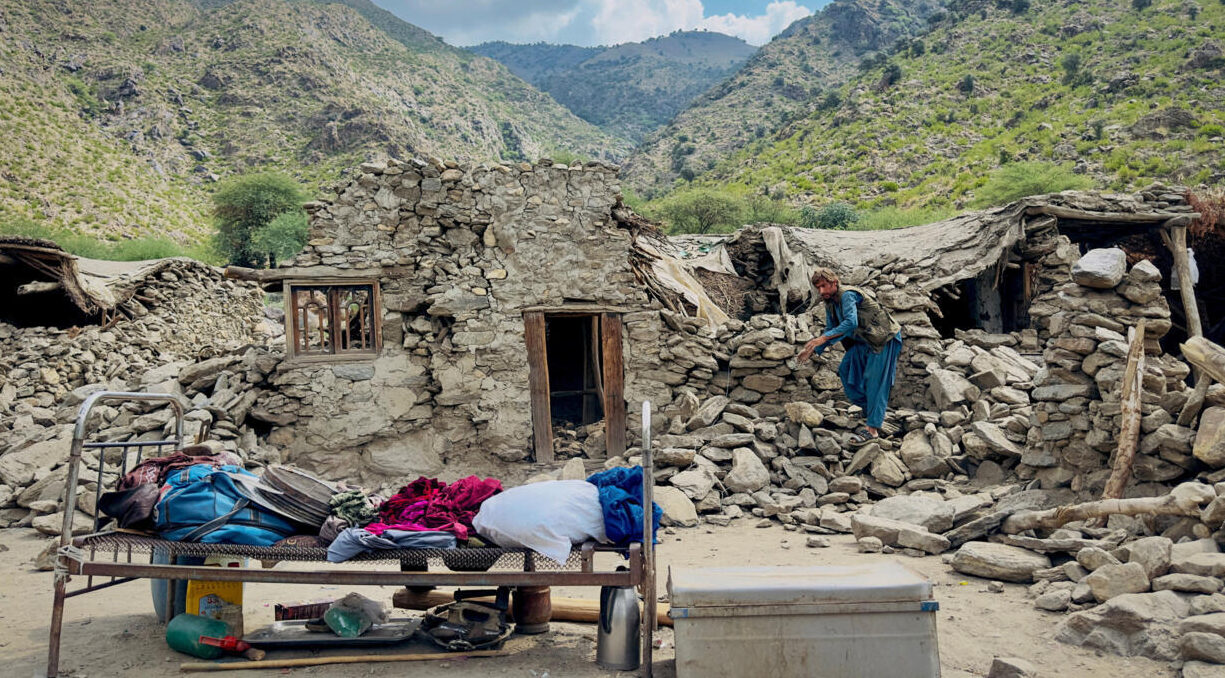Two powerful aftershocks rattled eastern Afghanistan just 12 hours apart, adding to the devastation of a week of earthquakes that have already claimed about 2,200 lives. Rescue workers are struggling against harsh weather, blocked roads, and dangerous mountain terrain as survivors wait desperately for food, shelter, and medical help.
The United Nations and aid agencies have sounded the alarm, warning of a massive funding gap. The World Health Organisation (WHO) says it urgently needs $4 million to provide basic medical care, disease monitoring, and supplies.
The Taliban government estimates at least 2,205 people killed and 3,640 injured since Sunday’s first quake. Thousands more have been left homeless, forced to camp outside in tents or open fields as tremors continue.
Fresh Shocks Strike the Region
On Thursday night, a 6.2 magnitude earthquake hit Nangarhar province, near the Pakistan border. Ambulances rushed 13 injured people to hospital; most were released after treatment. Then on Friday, just hours later, a 5.4 magnitude quake shook the southeast, the German Research Center for Geo sciences confirmed.
Local residents are too afraid to return home. With houses made mostly of mud, stone, and timber, many families are choosing to stay outside to avoid being trapped by another collapse. In Kunar’s Nurgal district, people have set up tents near rivers and on high ground.
Entire Villages Flattened
The disaster began late Sunday with a 6.0 magnitude quake, one of Afghanistan’s deadliest in years. A second quake on Tuesday, measuring 5.5, triggered landslides that cut off rescue routes and delayed aid. Together, the tremors flattened villages across Nangarhar and Kunar provinces, destroying more than 6,700 homes.
By Thursday, rescue workers were still pulling bodies from the rubble.
Aid Struggles Amid Global Silence
Earthquakes are common in Afghanistan’s Hindu Kush mountain range, but this disaster comes at a time when the country is already grappling with war, poverty, drought, and a mass return of Afghans expelled from Pakistan and Iran.
Relief has been slow. The UN has released $10 million, but officials say funds are running out fast. “We have some seed funding, but we are looking to make a flash appeal,” said Kate Carey, deputy head of the UN’s humanitarian coordination office in Afghanistan.
The Taliban have pleaded for international aid, but the response from wealthy nations has been minimal—limited to tents and small donations. Meanwhile, overcrowded shelters, unsafe water, and poor sanitation are raising fears of disease outbreaks among displaced families.
With more tremors expected, survivors now face a terrifying choice: sleep in the open with little food and shelter, or risk their lives returning to unstable homes.






